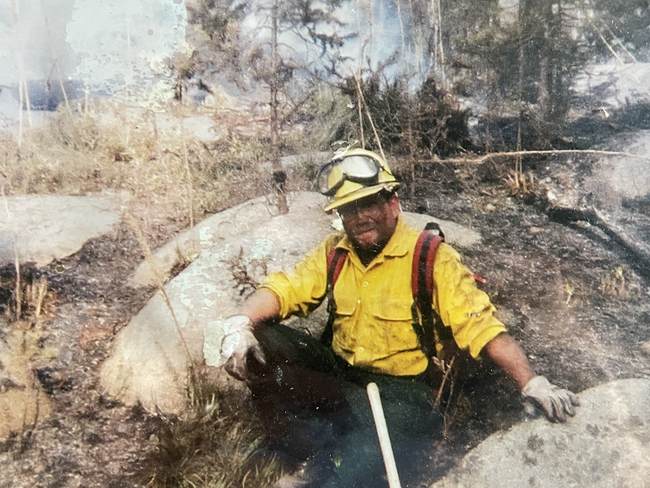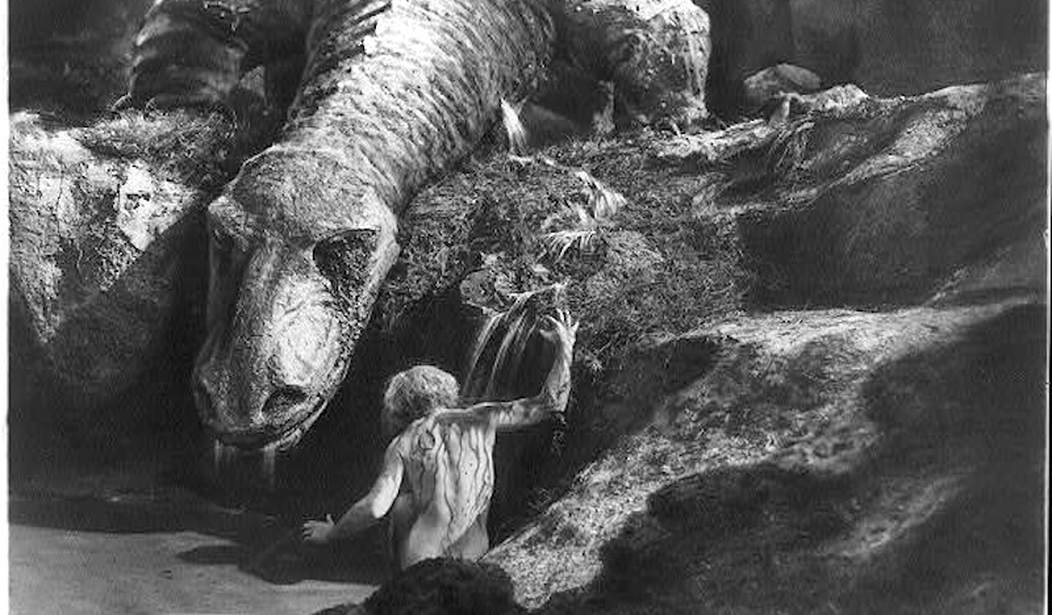"Whenever I find myself growing grim about the mouth; whenever it is a damp, drizzly November in my soul; whenever I find myself involuntarily pausing before coffin warehouses and bringing up the rear of every funeral I meet; and especially whenever my hypos get such an upper hand of me, that it requires a strong moral principle to prevent me from deliberately stepping into the street, and methodically knocking people's hats off—then, I account it high time to get to sea as soon as I can.”
— Herman Melville, "Moby Dick"
This time of year, my disposition is much like that of Ishmael's above. I become anxious and restless, and I frequently pace, stopping whenever I can to look up at the mountains. Fortunately, I have yet to knock anyone's hat off.
It is not so much that winter has finally gone, and I am ready to inhale fresh air and see the sun again. May God forgive me, it is because some leftover part of me wants to go back to the fire line. I start to miss the interminable hikes up mountainsides and bedding down in a desert. I miss the sound water makes when it hits a smoldering clump of pine litter in the dirt - a whoosh, followed by a blast of earthy steam. I miss the sweat and the dirt. I miss the smell of smoke. I miss the sounds of chainsaws and helicopters and the crackling of the radios. I miss trading jokes with my engine-mate, Brian. I even miss eating cold food in the dark by the light of a headlamp. I miss the satisfaction of tying in a section of line or watching a controlled burn do exactly what it was supposed to do.
And I miss the views. Dear God, how I miss the views. The first and only time I saw the Milky Way was on a mountaintop in the Boise National Forest. A rappel crew had been flown in ahead of us and cut a landing zone for the helicopter. We worked until dark and then ate MREs around a warming fire. I happened to glance up and almost choked on my cold Country Captain Chicken. I had never so much as conceptualized that there were so many stars and the Milky Way, trailing above me, looked like the finger of God Himself.
And while, when properly executed, firefighting operations should not put anyone in danger of injury or death, there are elements of risk, danger, and personal exertion that cannot be found in many other places.
I was by no means a career firefighter. I was only in the profession long enough to ensure that I would miss it once I got out. To this day, I get a small lump in my throat when I see the first engines rolling out for the season. Particularly the Type 6 engines, which is what I was on. It is even more heartbreaking now that I have reached a "certain age," and all my targeted website ads seem to be about various diseases and the benefits of cremation.
Above all, I miss it because I had a connection to something greater than myself.

The author taking a much-needed break (and violating safety rules about sleeves) on the Payette National Forest.
There is an ancient myth that has its roots in Germanic and Norse cultures. It is the story of Siegfried or Sigurd, depending on the version you are reading. Yes, it was adapted as an opera by Wagner, and yes, the Third Reich co-opted the story. But it predates both Wagner and the 20th Century.
In the course of the story, Siegfried slays a monstrous dragon by the name of Fafnir in order to claim his treasure. With Fafnir dead, Siegfried bathes in the dragon's blood to make himself invincible. While cooking the dragon's heart, he burns his finger and places it in his mouth to cool it. At that moment, he swallows a bit of the dragon's blood and can suddenly understand the language of birds. As Joseph Campbell put it, Siegfried "hears the song of nature."
When Siegfried has killed the dragon and tasted the blood, he hears the song of nature. He has transcended his humanity and reassociated himself with the powers of nature, which are the powers of our life and from which our minds remove us. You see, consciousness thinks it’s running the shop. But it’s a secondary organ of a total human being, and it must not put itself in control. It must submit and serve the humanity of the body. When it does put itself in control, you get a man like Darth Vader in Star Wars, the man who goes over to the consciously intentional side.
When you are on a fire, you are listening to the song of nature. Yes, the dragon is out there, hopefully at a safe distance. But it is still roaring, rushing and creeping, engulfing trees, eating up ground and withering grasses. I once saw firebrands destroy a bush the size of a garden shed in seconds, and I have seen trees suddenly become wrapped in flames.
But the fire is only part of the equation. You realize you can be subject to things much more powerful than yourself. Heat exhaustion and dehydration can be more powerful than you. Altitude and terrain can be more powerful than you.
Back home, you may have a stack of bills with "Final Notice" stamped on them in red ink. Your car may be sitting in the driveway, slowly leaking oil on the pavement. Your girlfriend may have stopped returning your phone calls. Your fridge may be as empty as the plains of the Kalahari. But there you are, miles and miles away from stoplights, fast food, loud mufflers, bills, convenience stores, strip malls, and the other daily contrivances and annoyances.
On a fire, you are vaulted out of the everyday and thrust bodily into another world. None of the above crises matter. Suddenly, you are watching where the fire is relative to where you are. You have an eye on the weather, looking for building cumulus clouds that could bring high winds. You are thinking about the surrounding fuels and the terrain and making sure you do not end up in a place from which you may not be able to escape if the unthinkable happens. You listen to weather reports to find out if there is a drop in the relative humidity. You are aware of being hungry and thirsty, and at the end of the day, you are looking for a spot of ground that is relatively free of rocks so you can pitch your tent for the night. You hear the song of nature not only because it is a necessity but because, at least for that moment, you are a part of it. You almost subconsciously become a part of the ecosystem, and in doing so, you lend your voice to the song.
It is exhausting, dirty, and occasionally dangerous, but it is supremely liberating.
It is harder now to escape the world since we labor under the delusion that we are under an obligation to take it with us everywhere we go. That little rectangle in our pockets or quietly recharging on the nightstand constantly demands our attention. We are afraid of leaving home without it. If it somehow goes missing from our custody, we are beset with panic. Scrolling may be the first thing we do in the morning and the last thing we do at night. This little piece of remote-controlled tyranny robs us not only of the song of nature but of each other. Amid scenes of great beauty, heads are bent to the screen. I have seen couples on dates with drinks and meals sitting untouched, each person caressing the screen with a forefinger.
Walking through the local tulip festival this past weekend, we happened upon a hidden spot. It was a recreation of a small English garden, complete with a fountain. Every chair and bench was occupied with people ignoring the flowers and the sound of the water. I had no idea of what they were looking at on their phones, but it had to have been damned interesting.
The sad thing is, it probably wasn't.
Exclusively for our VIPs: Slap to the Future
Being wired in allegedly connects us to the world but really, it isolates us from that world and, by default, each other. It also induces fear and panic. Even on the weekends, when we try to "fast" from technology at our house, I still find myself checking the headlines to make sure I stay current on whatever development is supposed to terrify me for the day. That little rectangle is not just whispering our secrets to ByteDance, Google, Apple, or data brokers, it is shutting us off from the world and making us crazy into the bargain.
Over at The Free Press, Jonathan Haidt has a piece and an accompanying interview with Bari Weiss about how technology has changed childhood and not for the better. This includes not only video games but also smartphones, social media, cameras, and "like buttons." Haidt identifies four "harms" that have infected kids with the rise of technology: social deprivation, sleep deprivation, attention fragmentation, and addiction. One story Haidt tells is horrifying, but another is a success in which a girl managed to get her life back from an eating disorder, which started with setting the phone aside.
It has changed adulthood as well. Technology is no longer something we use. It is something that uses us. To take Campbell's observation one more step, technology is mentally turning us into Darth Vader: more machine than man.
When it comes to kids, Haidt suggests parents ban smartphones until high school, and keep kids off social media until age 16. He also advocates for phone-free schools and "for more independence, free play and responsibility in the real world."
All good things for children, and it would not kill us to turn the things off more than once in a while ourselves.
Your soul does not belong to Apple. It certainly does not belong to Alphabet/Android. Your soul belongs to God. You, not your phone, have custody of your soul. This Spring, when the weather warms up and the earth greens up, leave your phone at home. Slay the dragon and hear the song of nature for a change, and maybe find yourself.










